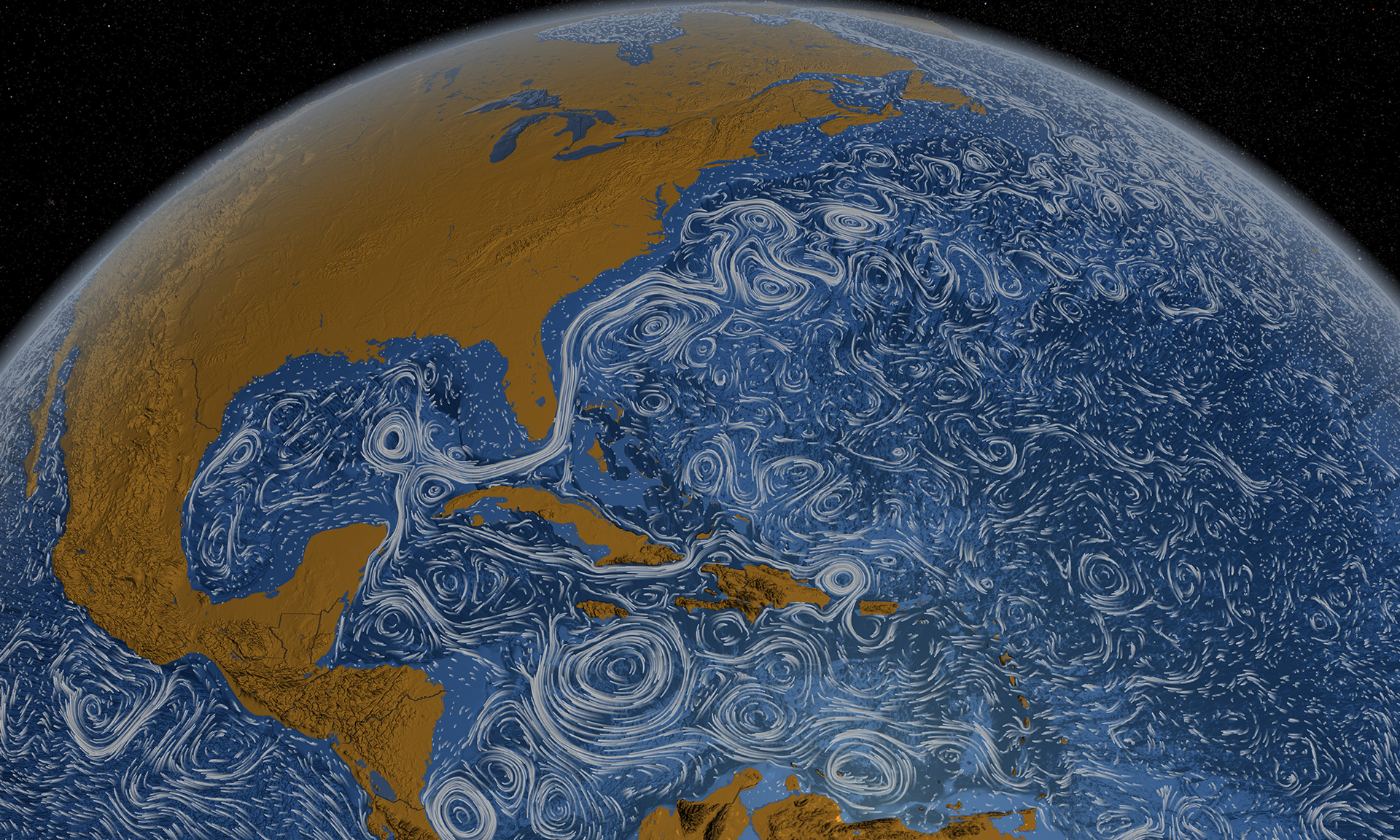
How does the atmosphere affect ocean weather?
A new Rochester study upends previous assumptions about how surface winds and ocean weather patterns interact.
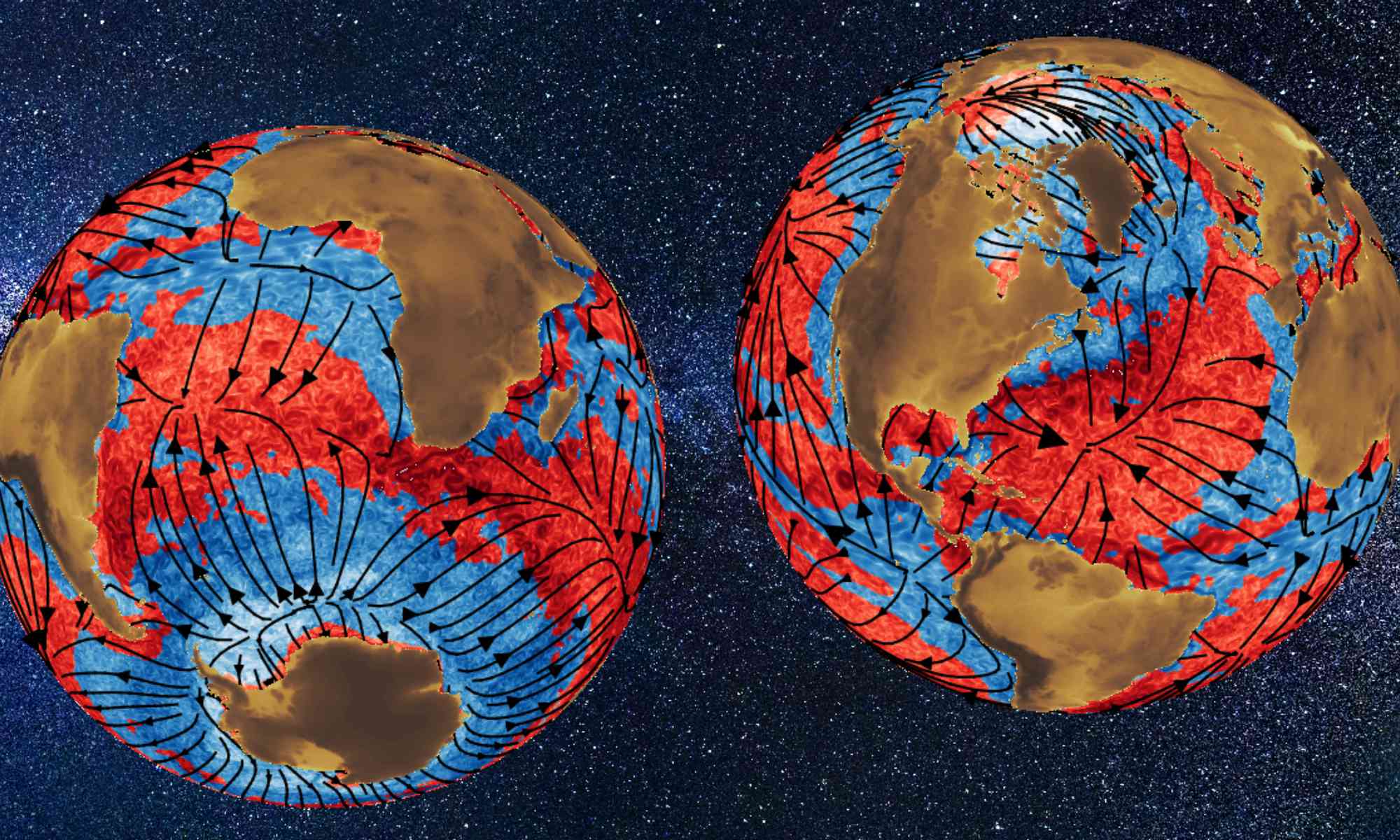
Scientists uncover link between the ocean’s weather and global climate
Using mechanical rather than statistical analysis, an international team of scientists offers a new framework for understanding the climate system.
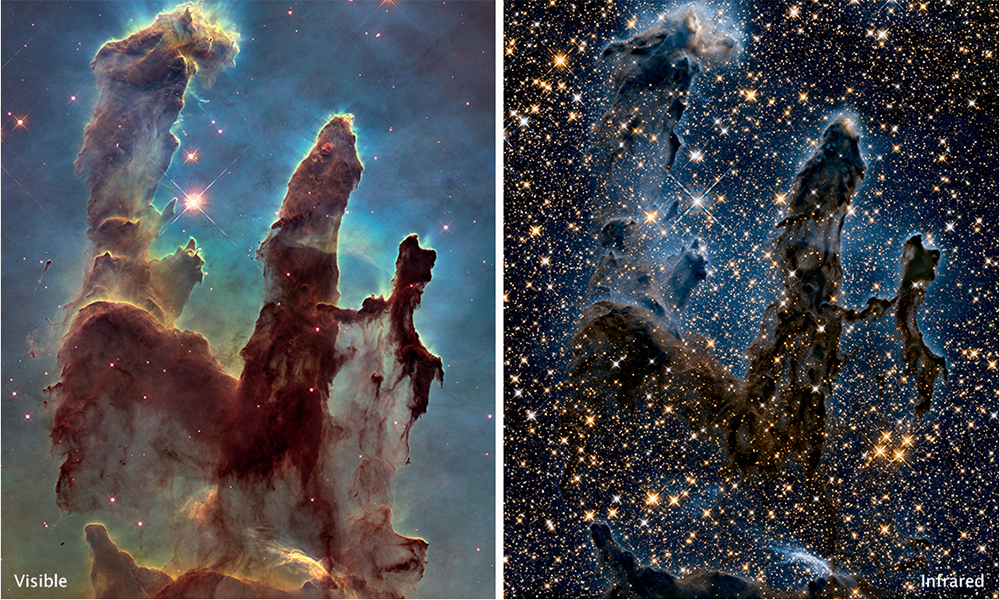
How do magnetic fields affect star formation and high-energy-density lab experiments?
Rochester researchers hope to explain how the fields occur in plasma instabilities
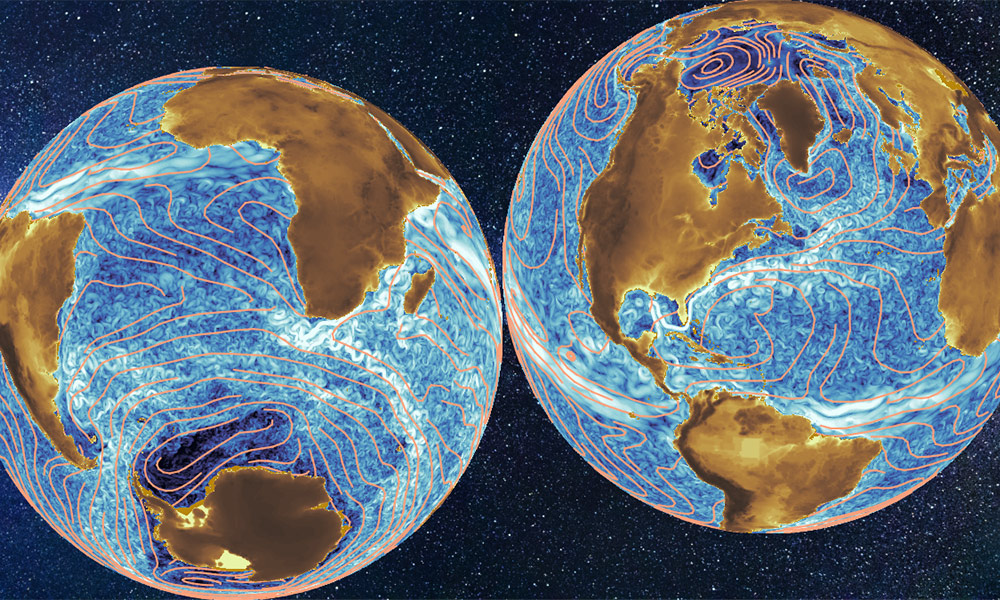
Rochester researchers go ‘outside the box’ to delineate major ocean currents
For the first time, University researchers have quantified the energy of ocean currents larger than 1,000 kilometers.

New tool cuts guesswork about ‘eddy killing’ in oceans
Using satellite imagery, University of Rochester scientists have provided the first direct measure of how eddy killing affects Earth’s oceans.
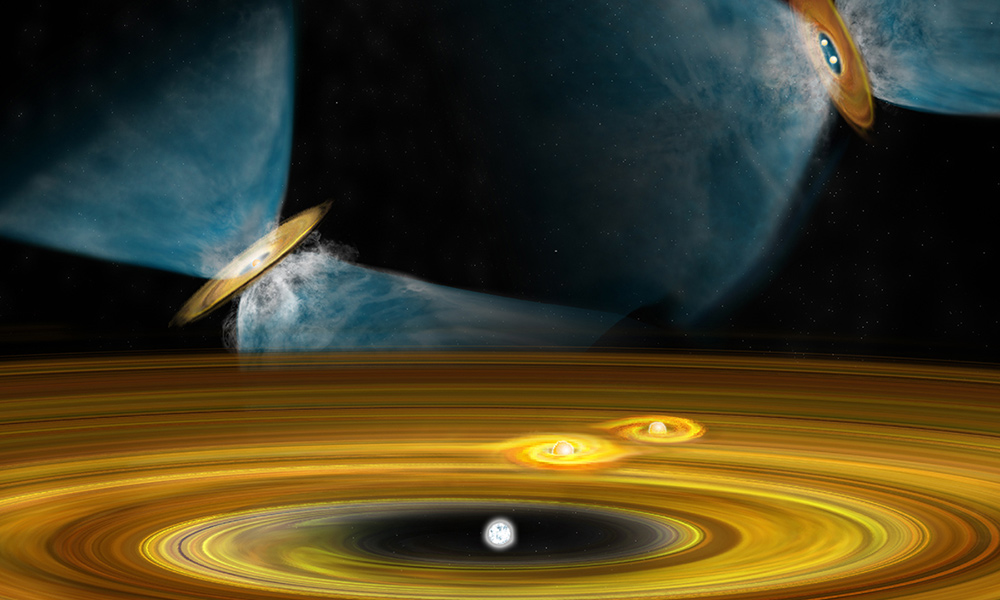
Rochester leads effort to understand matter at atom-crushing pressures
The University is the host institution for a NSF-funded national collaboration to explore ‘revolutionary states of matter.’
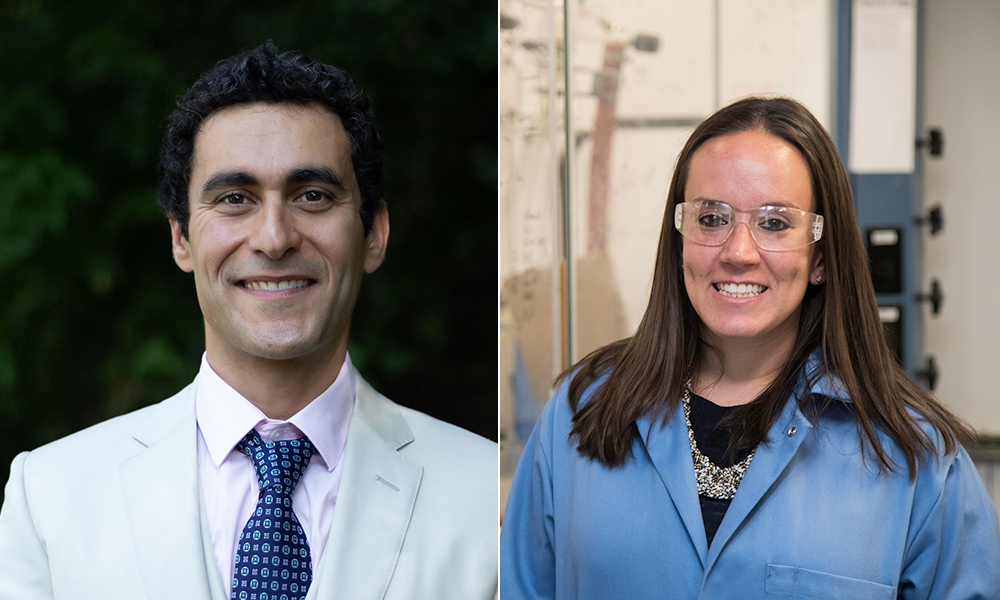
Two faculty recognized by DOE as exceptional researchers
Two University of Rochester faculty members–Hussein Aluie and Ellen Matson–have been named recipients of Early Career Research awards from the Department of Energy.
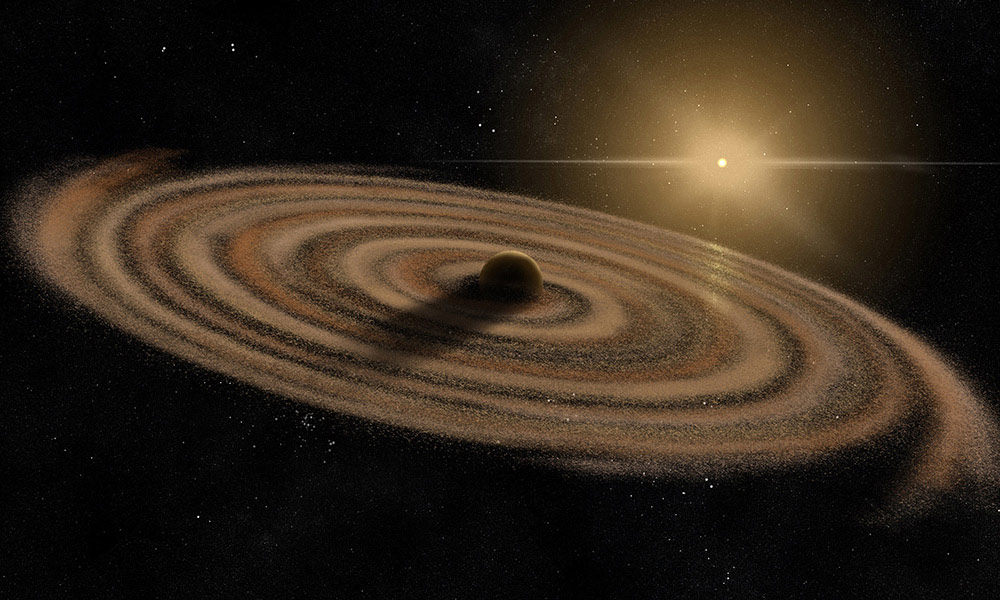
Finding order in the chaos of turbulence
A new set of conservation laws developed by Rochester researchers are unique to the turbulent flows within magnetic fields, and could help explain the evolution of stars and galaxies.
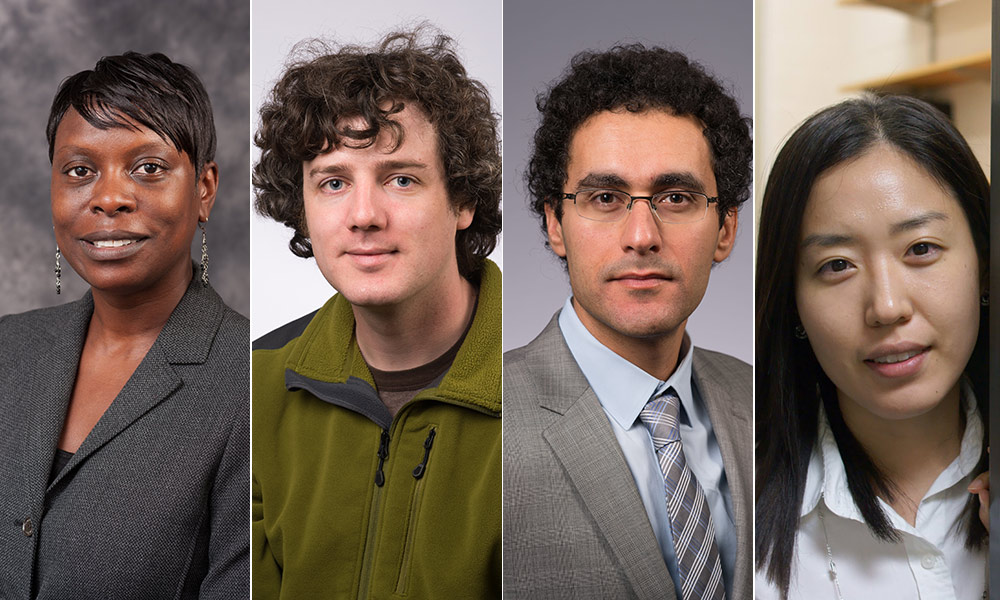
Promising young faculty recognized in Arts, Sciences & Engineering
Four faculty members have been chosen as this year’s Wilmot Assistant Professors. The two-year awards recognize “some of the most promising young men and women in the early stages of their academic careers.”
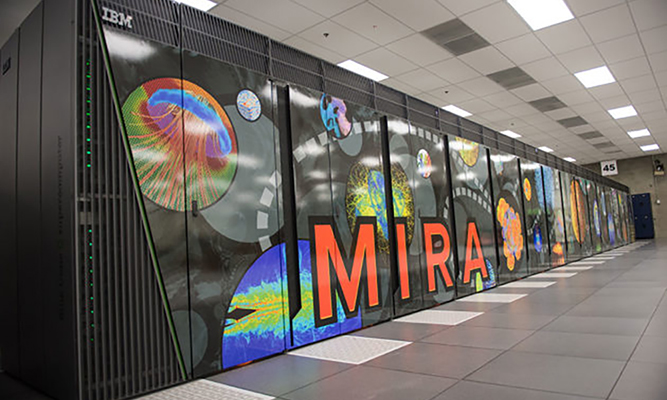
Aluie awarded hours on supercomputer at Argonne
Most academic grants come with money, but Hussein Aluie has received a research boost that money can’t buy. The assistant professor of mechanical engineering has been awarded access to the supercomputer Mira, which will allow his team to do in four days what it would take a desktop computer more than 2,000 years to complete.
